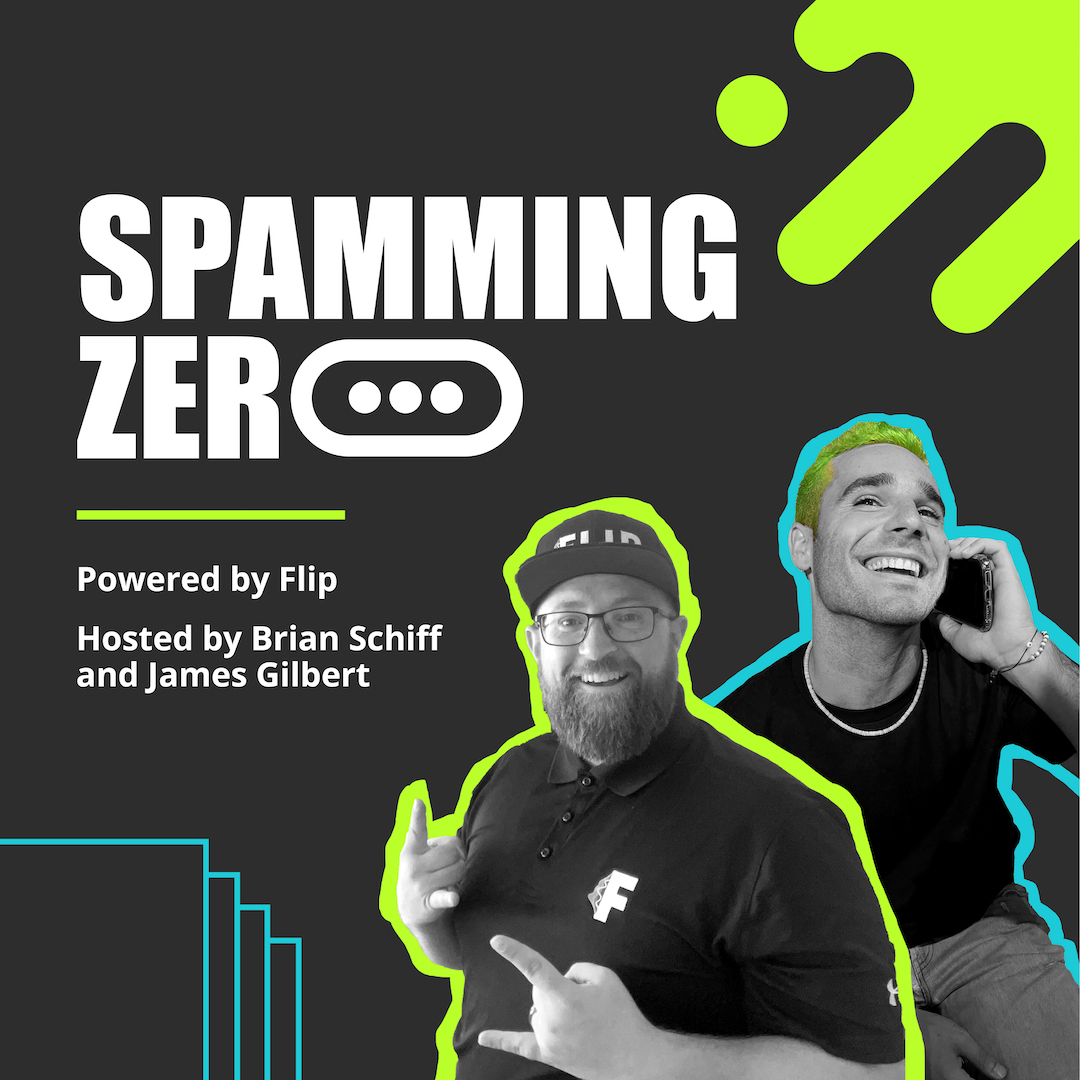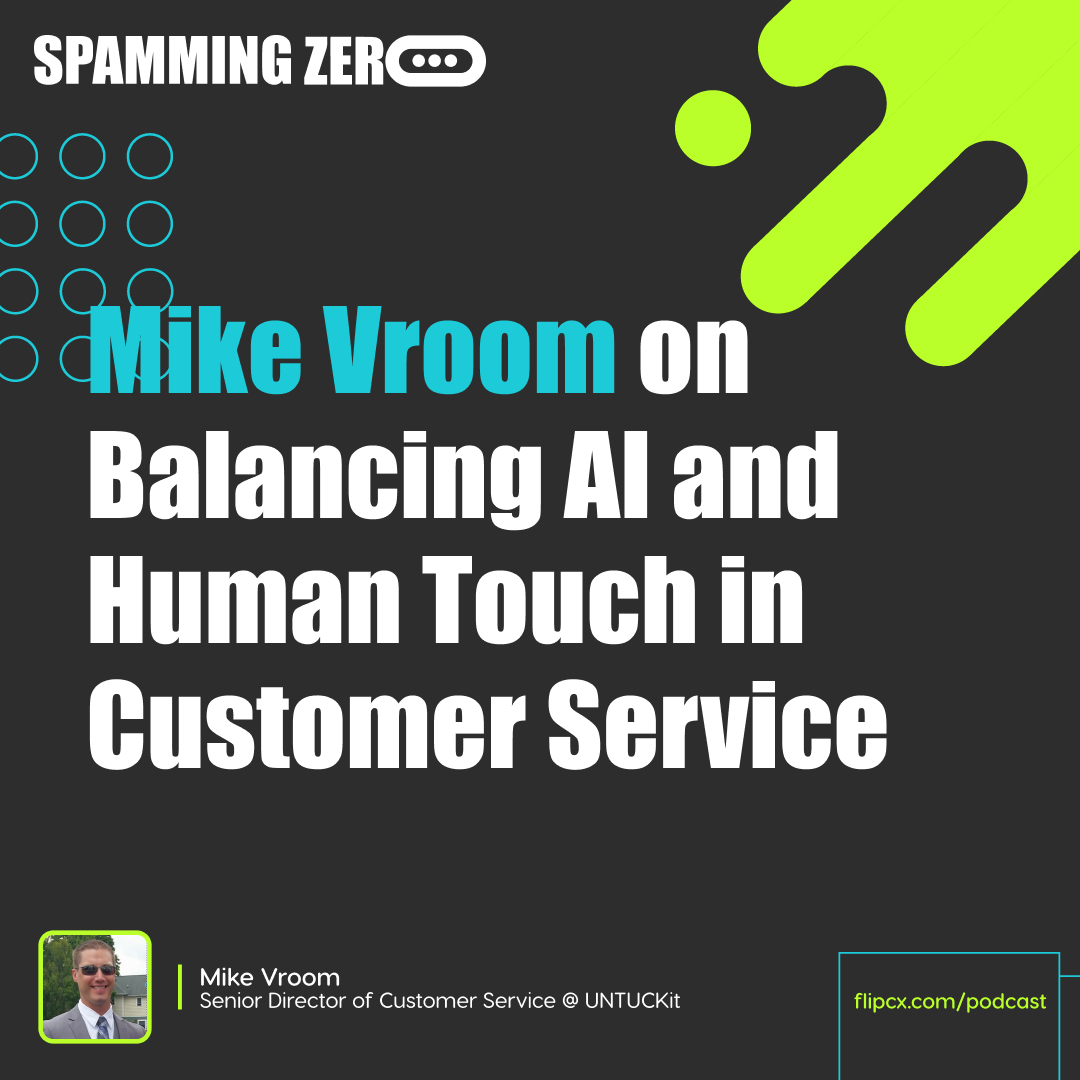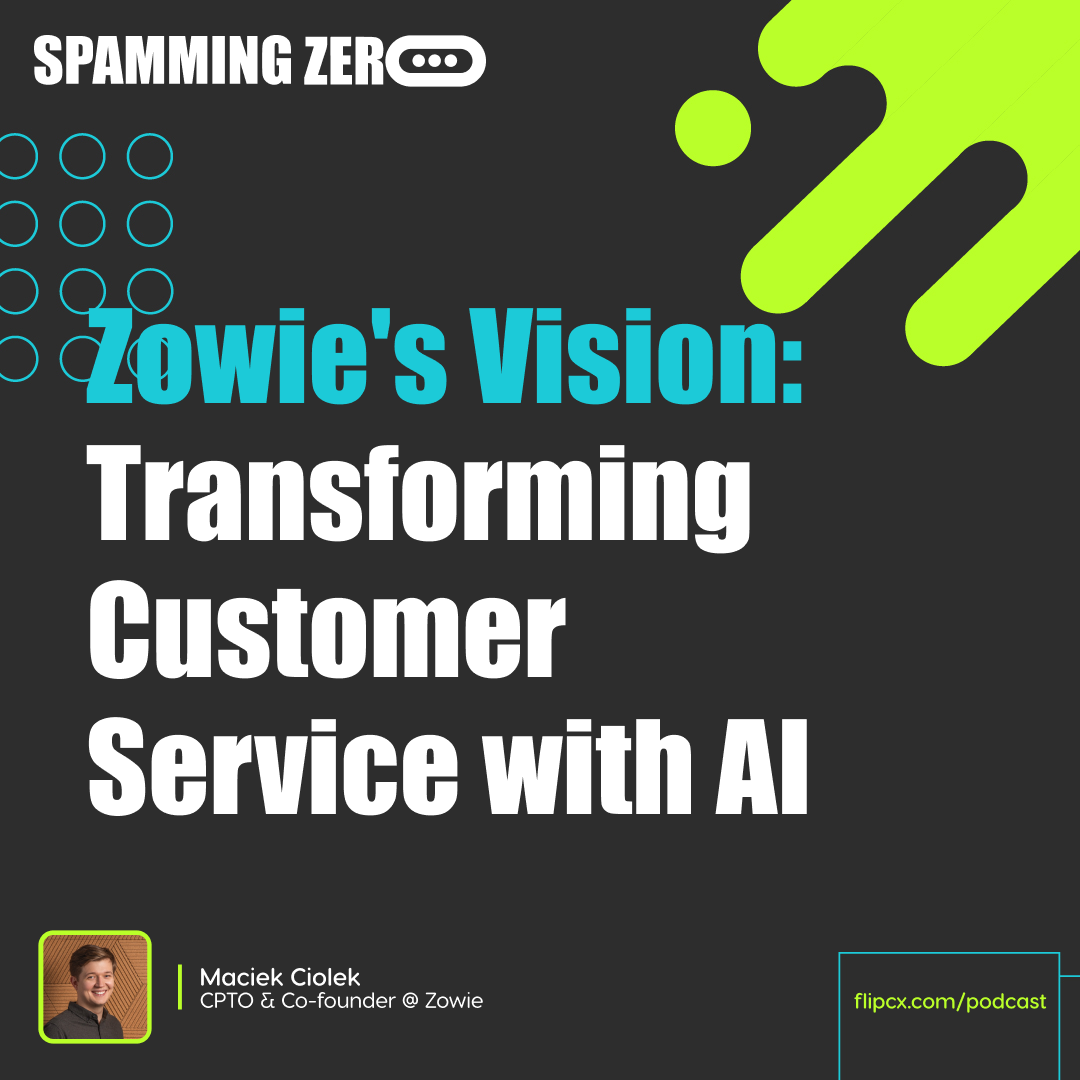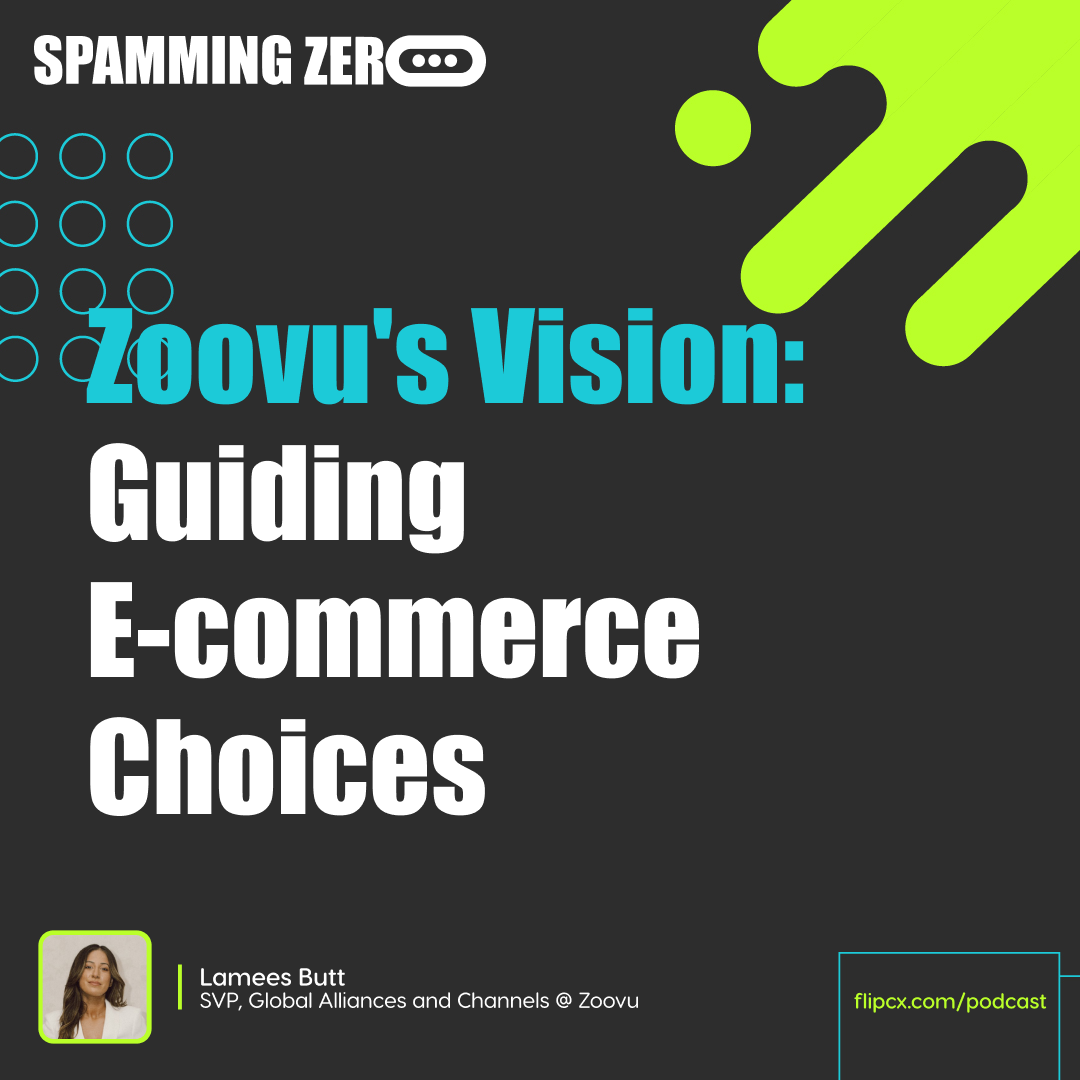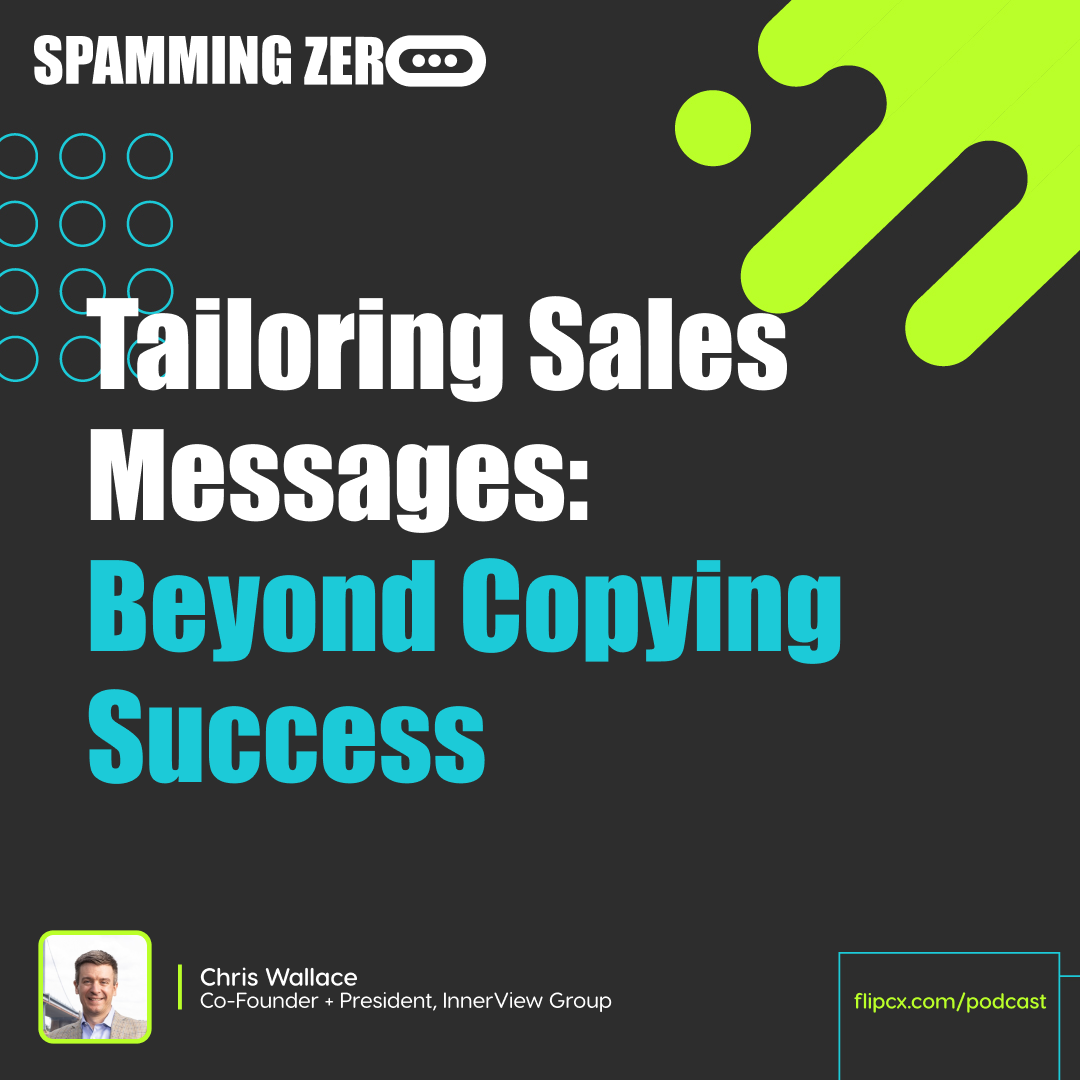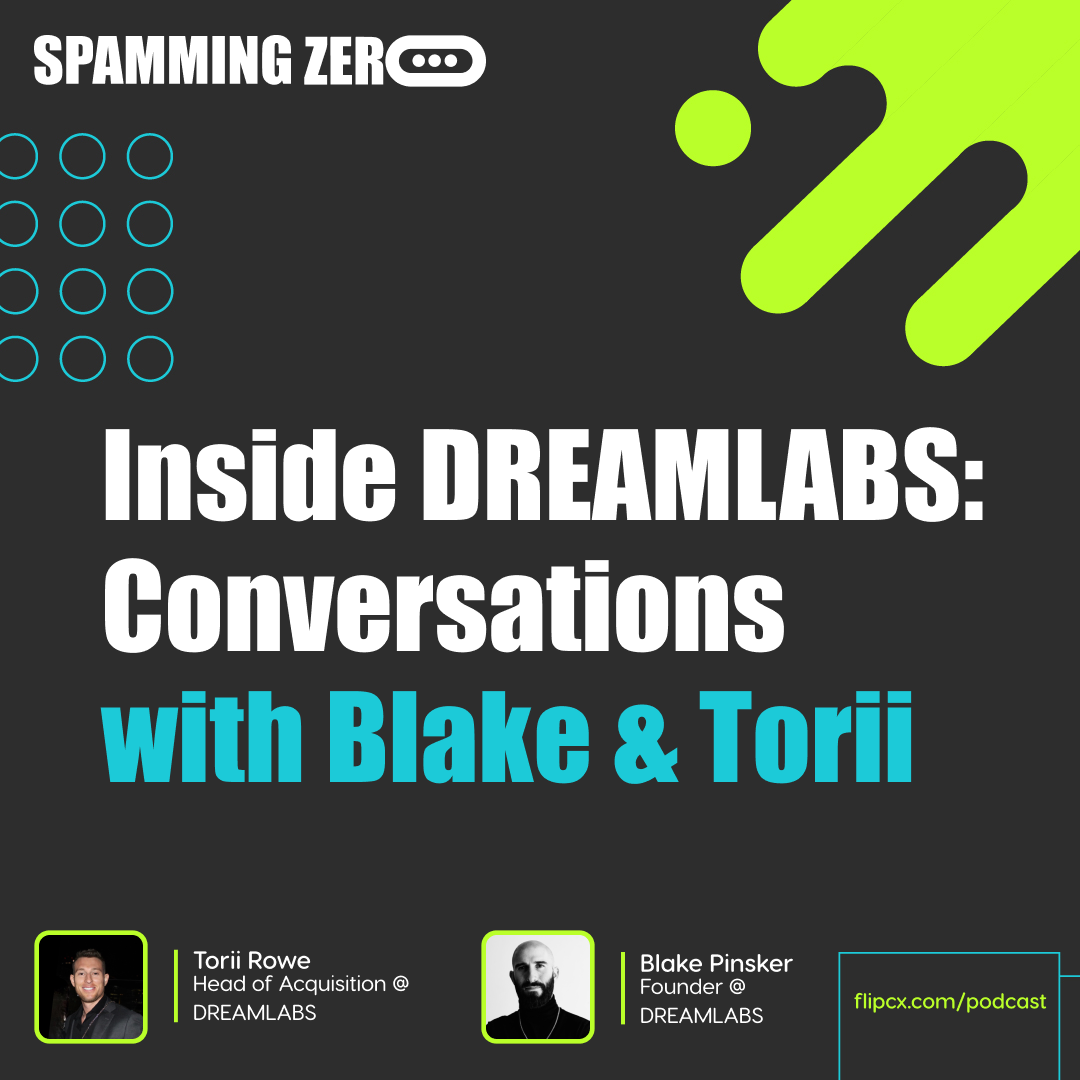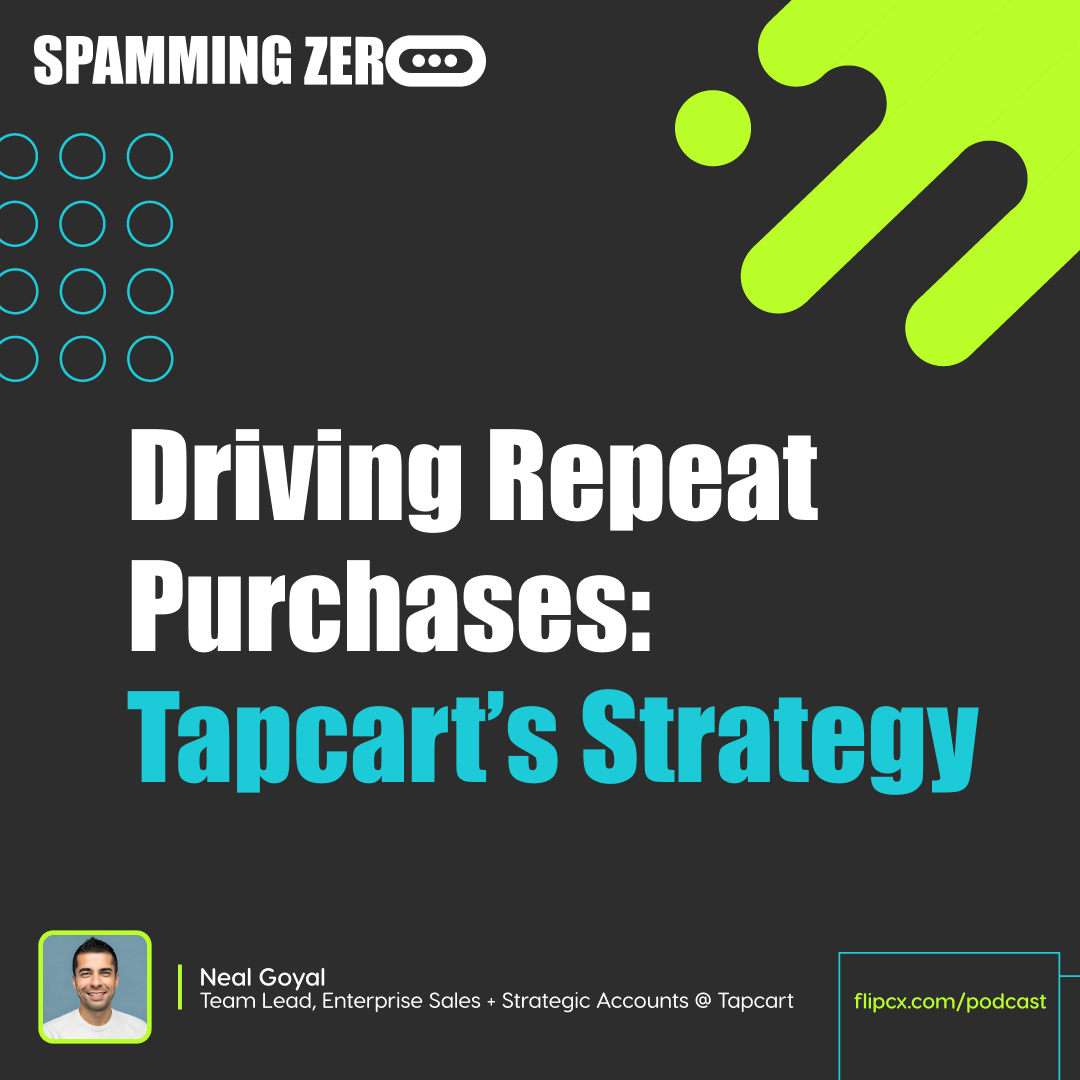Episode 58: Humanizing The Internet With Empathetic AI - A Chat With Siena AI’s Lisa Popovici
- 0.5
- 1
- 1.25
- 1.5
- 1.75
- 2
James: Hey, everybody. It's July 2023, and this month's sponsor of the Spamming Zero podcast is Justuno, justuno. com. That's J- U- S- T- U- N- O. com. They create personalized website experiences that converts specifically for e- commerce as well. They work with a bunch of direct to consumer brands, but I find it very fascinating. Here's some just stats that they have aggregated across all their customers. On average, a customer of theirs sees 135% lift in online revenue in the first year using Justuno. That's amazing. That's incredible. They also see five times the amount that they grew their email list almost by 500% with Justuno, with one of their customers called Snow Monkey. And then another one is 133, 000 industry leading brands leveraging Justuno. This is insane to me. Justuno offers a bunch of different solutions that I really can relate to as a marketer, especially if you're in the direct to consumer space. This is a great place to start. You can drive engagement through gamification, do personalization at segmenting and targeting as well. Also, tying into sales you can increase the sales as well as the paid media and email list growth, which is one of the hardest things to do across all marketing. So that's justuno. com. They're incredible to work with. We love them here at Flip. They're one of our partners and they're also really well integrated into your e- commerce stack, so they already connected to your Shopify accounts, your Magentos, whatever your OMS might be, they can tie directly into it. It's just uno. com. I'm James.
Brian: And I'm Brian.
James: And this is Spamming Zero. What's up, everybody to another episode of Spamming Zero. Thanks for joining us, and thank you to all of our listeners out there who have been loyal. We are past 50 episodes now. Can you believe that? It's getting pretty crazy out there. Super excited about today because we have somebody who I've been wanting to get on the podcast for a little while. I love what she's doing. I love what their company is doing. Lisa Popovici at Siena AI. Welcome to the show, Lisa.
Lisa Popovici: Hey, James. Thank you for the invite.
James: Yeah, I'm excited. Tell the audience a little bit about who you are, your background, and give us the down low on Siena.
Lisa Popovici: Yeah, of course. So I'm Lisa, one of the co- founders at Siena AI. I am a second time founder. This is our second company obviously with other ventures in our background, but I would consider everything that happened so far as our founder university that you never get unless you just start building something. But I've been in e- commerce for eight years now. My journey started when I met my co- founder, Andrei. I was actually studying to become a doctor. Obviously, that didn't happen because I got too passionate about e- commerce and software, but Andrei introduced me to Shopify. He was running his Shopify brand and I got very passionate about it. For me, just started as a side gig, as a side project. Just I wanted to learn. I was always very curious. I am by nature, very curious and I constantly love learning. I was always super intrigued about no online marketing. So it was just open and entire new world of opportunities to me. I decided, " Okay, I want to open my own Shopify brand and just have this as a side hustle because six years studying at med school, no income, just relying on your parents, not really ideal." And it can go even longer than six years. You have your residency, you have all of those. Yeah, it's a long journey that didn't really felt like it aligned with my system of values. I was always very dedicated, waking up at 5: 00 AM in the morning to study, and then in the afternoons I was working on my Shopify business. But something was definitely missing from that dedication and excitement that a doctor should have, right? Because I didn't see myself from an early age being a doctor. So it just happened because it was pretty challenging at 18 years old to know what I want to do with the rest of my life. So that's why I got into med school. It seemed like a good option for me, but I didn't know what else was out there. So Shopify actually really opened a lot of opportunities for myself. Andrei and I, we were running our brands in parallel, and that was the starting point for us looking into... We experienced so many pain points, so many frustrations. We know exactly what it's like to be on the other side, not on the building software side, but on the merchant side and because we've experienced all of it. So we were always super bullish on how the ideal customer experience should look like. We've been through so many ups and downs with our own companies and we try to make things better. We've always been building in this conversational commerce space. Siena is our second company. Cartloop is our previous company, which is also a conversational SMS marketing tool for Shopify. It's like the predecessor of Siena. Siena is in a way Cartloop on steroids and much more than that. But yeah, I mean it's been quite journey going from med school to building on Shopify to exiting those businesses and then starting to build software. Now, we are building one of the most advanced empathic AI customer service tools for e- commerce. I can share a little bit about Siena. So what Siena is, is an empathic AI customer service platform that helps brands automate conversations across all channels and in over 100 languages using generative AI. One of the reasons we are positioning ourselves as empathic AI is because every single response or action that Siena performs either it's presale or post- sale or during the sale, it's extremely personalized and dynamic. Customers that engage with Siena today, they feel like they're talking to a real person. They have no idea that it's AI. And this is something that we've always wanted to see come to be because we were always thinking, why isn't there a better solution than chatbots or rule- based automation, which seems so rigid, so bad, so frustrating? To be honest, if I were to go back to being a merchant and having another direct- to- consumer company, I would prefer just sticking with amazing people rather than just implementing a basic chatbot that will only provide a better experience. So we were always thinking and having this thesis of how the ideal customer experience should look like. And this is Siena in a nutshell. We are working with amazing, amazing companies, mostly direct to consumer companies. I mean, we are a new company. We started nine months ago. We got out of self- mode in March, I believe, it was the 23rd of March, and things have just been blowing up since then. It's extremely exciting to finally shake things up in the customer experience space and reshape the way things have been done so far. We feel like the market and teams, and customers, consumer all over the world are just ready for a better experience, seamless experience and just more efficient. Right?
James: Totally agree with you. I love your vision of humanizing the internet. I've been following you for a little bit on LinkedIn, and I think when founders do a really good job, they build in public, right? And I think you're doing an incredible job at that. So kudos to you for that. I love some of the product details that you put out there. I think it encapsulates the vision that you have brought to the surface, which I think is beautiful on humanizing things. I want to dive into something in a little bit, but whenever we do these podcasts, we always like to do a little bit of a fun little icebreaker at the very beginning of the show. So I'm going to ask you a quick question and I'd love to get your thoughts on it. Now, obviously moving from being a med student and the passion of being a doctor to now changing your passion to being an e- commerce and helping run an e- commerce company, I imagine there's probably a brand or two out there that is your go- to always. So if you were trapped on a deserted island and you could only shop at one place, where would it be?
Lisa Popovici: That's a really good question. I think I'm very obsessed right now and maybe a lot of people I know it will say it's a cliche, but I love Athletic Greens, so that would be my go- to.
James: All right, cool.
Lisa Popovici: And I love their customer care department. I know they're very bullish on providing the best experience. And yes, I really love the company. I love their product. I have it every day and it's healthy. It would provide me with a lot of nutrients on that deserted island.
James: So I've been going on this weight loss journey very, very recently, and Athletic Greens are something that I drink every morning now because I have a really hard time getting my breakfast in.
Lisa Popovici: I don't do breakfast either.
James: Yeah. It's just so hard. So I hear you there. I think that's a great brand. So let's dive into a little bit more of what you guys are doing at Siena. I want you to talk to us a little bit about this vision of humanizing the internet. I know you've talked about building empathetic AI, which I love that vision because we actually do the same thing at Flip, just on the voice side. We think that just that there is a massive amount of people in the world. Every single person we talk to says the experience of support and service is broken and no one likes it. No one likes the experience that they're going through. So from your perspective, what are one or two things that brands today should be thinking about when it comes to humanizing that AI and making it empathetic?
Lisa Popovici: So there are three main unique traits of Siena and innovations that we're bringing to this space that we believe brands should be adopting. So there's obviously the empathetic and the personalization layer, which for the first time ever, you can actually have that peace of mind as a company like Athletic Greens that you are implementing an AI system that actually speaks your voice, your language. It will not be limiting or frustrating to customers. It will not always redirect them or put them to wait in line or just wait for an email reply. All of those bad experiences. So finally you can do that. And we took it even further with this empathetic, personalized layer where our customers are able to create their own persona inside of Siena, give it their own description. Their own name. They can either go crazy and market it as an AI beauty expert, or they can just choose a human name because customers have no idea that it's AI. And they can describe that persona as if it were a person. They can give it attributes, their own attributes. They can even add real personalities. We have an LA Cookie brand, which they created multiple personas, but one of their personas is super interesting because they actually added the name of a chef. It's a very popular chef in the US apparently and they engage in that chef's voice. So you can go very crazy. It's super powerful. And then you can add your own instructions, give it the guidelines that you want Siena to respect throughout the responses. And then because you can go even deeper, you can deploy different personas per channel. So you can have that deep layer of customization. And if you want to enable a holistic customer experience and really have social media comments or DM's or SMS or live chat or email, you can have different personas based on how you like to engage on those channels, but also based on what type of customer demographics do you have on those channels, right? Because maybe on email, you usually talk with older generations versus in the social media comments where there's always engaging with Gen Z or it really depends. So you have this layer of flexibility which customers really love. Obviously, CNA by default is programmed to be empathic, mindful matches the tone and behavior of the customer. So that's like even if you don't create any persona at all, you have that peace of mind. Now, the second layer I would say is the channel orchestrator. Basically we are the only AI customer service company today that is able to automate across all channels from a single place. So this allows brands to finally go beyond just the little widget on the homepage. Definitely Siena is not a chatbot. This allow them to have that flexibility, to have that capability of supporting customers on their preferred channels. And this is something that even four years ago I was preaching that if customers want to contact you via DMs or via SMS or WhatsApp, you should let them contact you wherever they feel like contacting you. So this is something very powerful. I know I posted on LinkedIn last week about Siena like pushing into production on of our biggest updates. And one of it actually has to do with this channel orchestrator and it's called contextual understanding. So for the first time ever, AI has for obviously these virtual assistants have the ability to have memory and have the context of the entire thread of everything that has been discussed in the past. So imagine, James, you are contacting Athletic Greens today via Instagram DMs. You have a conversation with them, but then in 10 days from now, you want to edit your subscription because you're traveling and you want to contact them via email or SMS. Siena already knows, " Okay, this is James. I know what type of customer James is. I know what type of subscriber. I know everything that we have discussed with James in the past. So I will not ask James again for his email or order number, I will just provide an ongoing seamless conversation and just address his needs or perform those actions that James needs in the most seamless way possible. So this is something that previously hasn't been possible before. So this is the second layer, the channel orchestrator. And the third one would be when you look at the implementation time, this is something that I'm discussing with every single customer every single day. Obviously, they care about what does it take for us to implement Siena? How long does it take? How do we train the AI? How do you create automations? Where does our data sit and how does Siena know how to respond? So this is something that we've innovated tremendously because when you look at traditional automation tools build on old technology you know that you have those dialogue flows, you have branching trees, you have-
James: Yeah, they very rarely buy it.
Lisa Popovici: ...very thankful experiences.
James: They very rarely can pull in that information too.
Lisa Popovici: Yeah, and you have to spend months before actually being able to launch a chatbot. You have to launch separate chatbots for different use cases. So it's like, " Oh my gosh, I could not do it in a million years." So with Siena, basically, the implementation time is reduced by 90%. You have 80% more use cases that you can automate, including the transactional scenarios, which are very, very complex. I'm talking about order related or subscription related, which require that action data and logic in order to be performed. So basically with us, you are on board, you connect your tool set, and then you can deploy automation. You can create and deploy automations within minutes because everything is plug and play. So the way we've designed the platform is no code, no workflow. Everything is a few clicks and then you're done. Because we know that teams do not want to spend time on software. They don't want to waste their precious time. They want to create things and deploy and maintain as easy and as fast as possible. And they want to work exactly how we as humans, we have high expectations. We want to work with the best people. We want to work with players. It's similar. We want to work with software that is able to be high performing and very easy to navigate, intuitive, user- friendly. So I feel like even when we look in the next five to 10 years from now, companies or individuals will not be wanting to work with very bad user interfaces. So this is something that's also part of the entire way that we've designed Siena. So I feel like these are the three main components that really makes Siena unique today.
James: I love it. I can tell you firsthand, so much of this resonates with me because we've done product releases at Flip that are very similar. We actually call it contextual wear as well. So it's interesting that we use this exact same language, so I love that. When we very first chatted as part of us coordinating the podcast, I asked a question and I'd love for you to answer it now. When you're thinking about the world of e- commerce, what's something that you're really passionate about that you think that the rest of the world might disagree with? It might cause a little ruffled feathers, as you may say.
Lisa Popovici: Yes, definitely. I'm passionate about AI is and every single day, this is the only thing that I talk about our team talks about and preaches and works on. But I'm very, very passionate about how AI is shaking up customer experience and customer service. I know that there's a lot of, still, it's in the early stages. They're just getting started. Some people are still skeptical. They might not be so open or embracing it at the level or speed that we are embracing it, right? Because we are working with it. But at the same time, I feel like there's so much human potential that's being trapped over the last decades into repetitive work, being stuck doing the same thing over and over again. I feel like some of these roles are just being stuck on a treadmill, and that's not a good use of human talent. But with something like Siena, when you look at customer experience, we can take those folks off the treadmill and put them in the driver's seat. So this is an analogy that I like to share because finally they can steer their time and energy towards more complex, meaningful work that really need that human touch. I feel like there's never going to be... I mean in my world, there's never going to be a world without humans. Humans and AI for me make the perfect operating system, and this is how we see things at Siena. It's all about bringing the two of them together. And the way-
James: I completely agree.
Lisa Popovici: ... Ilike to describe Siena during my onboarding calls is like, " Hey, Siena, imagine it's just an intern that joined your team." It has superhuman capabilities. It's infinitely scalable, it just needs a little bit of nurture and love. And this is exactly AI, no matter of the department or the tool that you would have, it's giving you superpowers. It's augmenting you and your team, and it really will help customer service teams perform better. It will finally give them some space to actually work towards more interesting areas of their career and actually have a career path. That means we don't want to just drill down tickets or copy paste macros for the rest of your life. You want to do something more interesting, exciting with your career, even upskilling and working on the technology. For me, it seems much more interesting than just being in the ticketing system every single day. So it's like this is the future we're working towards at Siena, a future where humans and AI work side by side creating something that's really bigger than the sum of its parts. So it's something that I'm really passionate about and applies obviously to various industries. We are at an inflection point today, exactly like the iPhone moment or the internet moment. It's just that some people might not figure it out yet, but I feel like even one year from now, things will just look extremely, extremely well. I'm very optimistic usually. Obviously, with any kind of innovation, there's downsides, upsides, but I always look at upsides because as long as we have the right people working and building this kind of technology, I believe that it'll be for the greater good.
James: Yeah. I completely agree. Obviously, very biased right now with AI as I should be. But I think this is a great segue to some of the next questions that I have for you. Naturally with AI, there's a lot of fear behind it. Right?
Lisa Popovici: Mm-hmm.
James: I think one, people want to know when vendors that are AI based, they want to know what the ethical side of it is. Are there values that you have behind the Siena product? I'd love for you to dive into that a little bit. So two things. One, how does Siena think about those things from those that are considering AI? And then two, how would you help those that have that fear overcome it?
Lisa Popovici: Yeah. So the way we've built Siena, obviously, it has a lot of security in place, safety, measurements, guardrails. We have multiple layers that make sure that before Siena even considers to respond to a customer and actually goes, we go to the end customer and actually respond. We're not an agent assist tool or suggesting responses. We're actually going and doing the hard stuff. We want to take as much as possible from the agent's plate and have them really focus on things that actually are more exciting. So we go after the challenging stuff about... We go after the 80% of customer service inquiries that are very challenging. To fulfill it right now are manually being handled. So before considering responding, the way the system works is based on a confidence score. Also, it has a lot of layers, as I said that put that safety measurements in place. We also have this, I mean, there's a lot of technical things that I don't want to get into, but we have an adversarial network who basically just ensures that based on if the automation was created or if there's context for that specific automation, Siena will just look at that and then based on that, we'll give it a confidence score. If it's above a certain threshold, it will respond, but if it's lower, it'll just either provide an acknowledgement message that, again, it's superhuman or it just flows to the agent because we have this seamless handoff transition, which makes the system work very, very well with humans. So if Siena works in sync with humans, it does not interfere with their flow. No ticket will be lost. Because it's just another agent basically inside of the help desk account because we integrate with all help desks. So definitely Siena will not go outside of what the customer information is. And also, there's a lot of cool things inside of the platform, which allows our customers to have full control over what they want to automate and over which channels they want to automate on. So it's not like, " Oh, you install Siena and Siena will randomly start replying to everything." No, absolutely not. It's a gradual process. We take a very rigorous approach and in how we start and what kind of scenarios we start with, and then just we scale every single week from there. I'm not sure where is your second question, but maybe this addresses both of them.
James: Well, just what would you tell people that do have a genuine fear of this stuff and how would you get them over the phone?
Lisa Popovici: Yeah, exactly. So another cool thing that we have because we know that everyone wants to build up their confidence before deploying Siena across any channel. So we have a testing environment inside of the platform where they can test everything before it goes live. They can test different personas, different formats, because Siena has the ability to do channel formatting that on email we talk differently versus how we talk on DMs. On DMs, we don't really respect any format. We're super chill casual versus email where we have this much more professional stints. We have greeting bodied signature. So Siena respects that across all channels. The playground, it's super fun. You can test anything. You can really test the capabilities of the system. I always encourage customers, " Hey, for any specific scenario that you want to test, try to add as much complexity. Maybe look in the history of tickets and take something like a very complex email with 10 paragraphs and just give it to the system because that's how we find areas for improvement. So that's where we basically, see, " Okay, what would Siena do if this were to be a real ticket, or a real message?" So I believe that really, really helps with...
James: We do the same...
Lisa Popovici: ... increasingthat confidence, especially for folks that are a little bit like new or maybe, " Hey, they haven't tried this before." It's normal.
James: Yeah, we do the same thing at Flip. We call it listening mode, where basically turn on. It's just in the background and it listens to what the customer's intents are, and then they can literally build out the intents because there's so many people also that don't have the technology or they're not tracking the general intents that people are calling in or engaging with customer support on. And so they're relying on the agents really to do a lot of that. And then that stuff doesn't get pushed upstream, so it can't be automated. Right? There's so much of that going on too that these testing environments that you guys provide and listening mode that we provide at Flip, that's what it's for is to help you streamline that. All right. We're going to switch gears. We're going to play some games. Are you ready?
Lisa Popovici: Okay. Yes.
James: All right. So we're going to play FMK. So what is something that you think is really sexy in e- commerce right now?
Lisa Popovici: AI.
James: That's a good answer. Okay. What is here to stay in e- commerce? You can't say AI again. That's cheating.
Lisa Popovici: Oh, what is here to stay? Customer experience will always be here to stay. Good customer service. There will always be room for improvement in the customer service, on the customer service side, in my opinion.
James: Love it. All right. What would you kill?
Lisa Popovici: This is a good question, but I would say just right off the bat, maybe static ads.
James: Okay, cool.
Lisa Popovici: They're so boring.
James: Okay. Now, I want you to fill in the blank. I'm going to say a sentence and then I'm going to leave it blank. Customer support in e- commerce is what?
Lisa Popovici: Crucial.
James: All right. I love it. Great use of a word. E- commerce needs a lot more, what?
Lisa Popovici: Empathy.
James: Ooh, good one. I would do anything for those I love, but I won't do, what?
Lisa Popovici: The work for them. I always like to challenge people because they can do it on their own.
James: Great answer. I'm the same way. I have four kids and my kids sometimes drive me nuts with how lazy they get. And I'm like, " Look, you've got to learn this stuff on your own a little bit. Everything can't be handed to you." Okay. So we're almost at time, and I'd love to ask you one last question. We ask this question with every guest that comes on, and we've all had great experiences, we've all had bad experiences when it comes to just brand in general. I'd love for you to tell the story of a good experience that you've had left a lasting memory for you. And what brand was it with?
Lisa Popovici: I mean, it was with a brand, but it was not e- commerce necessarily. It was something recent. So does this apply?
James: Yeah, absolutely.
Lisa Popovici: It relates to customer experience. So this is something that stuck with me. So there's this juice, coffee place that I go every single morning. And the folks there already know me very well, and they just like, whenever I go in they're like, " Oh, ginger shot, very strong." And I'm like, " Yes." So I feel like that's the customer experience, that's what customer experience should be all about getting to know the customer so well that you anticipate their needs before they even knowing that or before they even thinking what they need to score or need from you. And that's exactly what we're trying to do at Siena, really giving businesses the tools to not only serve their customers, but to understand them, to anticipate their needs, to really go above and beyond creating those memorable experiences. In life, another thing that I've learned, and I'm trying to do more of that, it's all about punctuating every single moment because otherwise, weeks go by, months go by, years go by, and you just don't remember what happened. Last year in May, if you didn't punctuate it in somehow, and I really made it memorable. So I feel like you have to not only meet your customer's expectations, you got to exceed them. I feel like that's a really game changer. Even if my example is not like, " Oh, mind- blowing, but I feel like it's such a small detail that actually sticks with you."
James: Love it. Lisa, you've been amazing on the show today. Thank you so much for joining us.
Lisa Popovici: Thank you.
James: For all of our subscribers out there, or if you're not subscribed, please do so. If you are just learning about Spamming Zero, we are more than 50 episodes in. Go listen to some of the previous episodes. I think you'll like them. There's some really good guests on there as well. And give us a rating. We'd love to hear from you. If there's a topic or a guest that you have not heard from and you want to have them on the show, just reach out to me on LinkedIn. Thanks.
DESCRIPTION
When you think of AI, “empathy” might not be the first word that pops into your head. Our guest this week is on a mission to change that.
Lisa Popovici is Co-founder and CMO at Siena AI, and a huge believer in the combined power of humans and AI. She shares some fantastic insights—and a whole lot of actionable advice—on Episode 58 of Flip CX’s Spamming Zero podcast.
What’s Covered?
- A bit about Lisa’s background
- Siena AI’s what, why, and how - in a nutshell
- Humanizing the Internet: the 3 innovations brands should be adopting
- AI’s role in helping humans reach their potential
- How Siena AI addresses fear around automation
- Flip, Marry, Kill - CX Style
- A small experience that left a big impression on Lisa
- And more
Ready for more fantastic Spamming Zero conversations ahead? Listen, rate, and subscribe on YouTube, Casted, Apple Podcast, or Google podcasts.
Today's Host
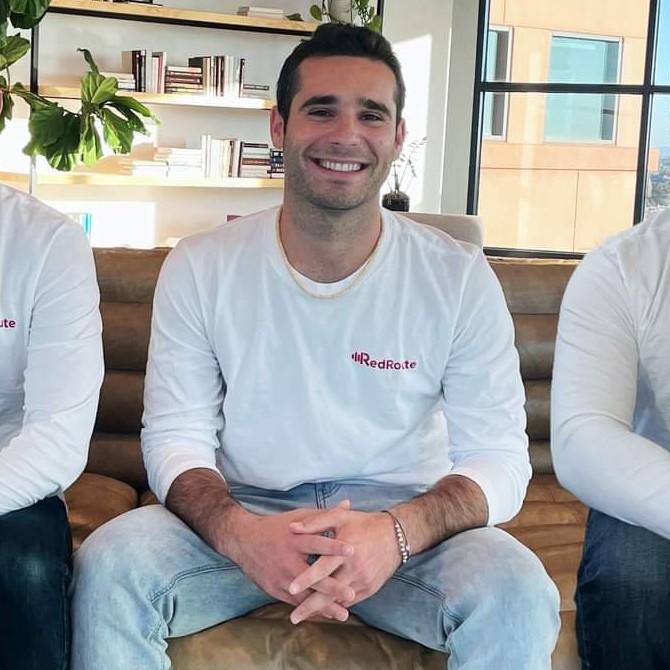
Brian Schiff
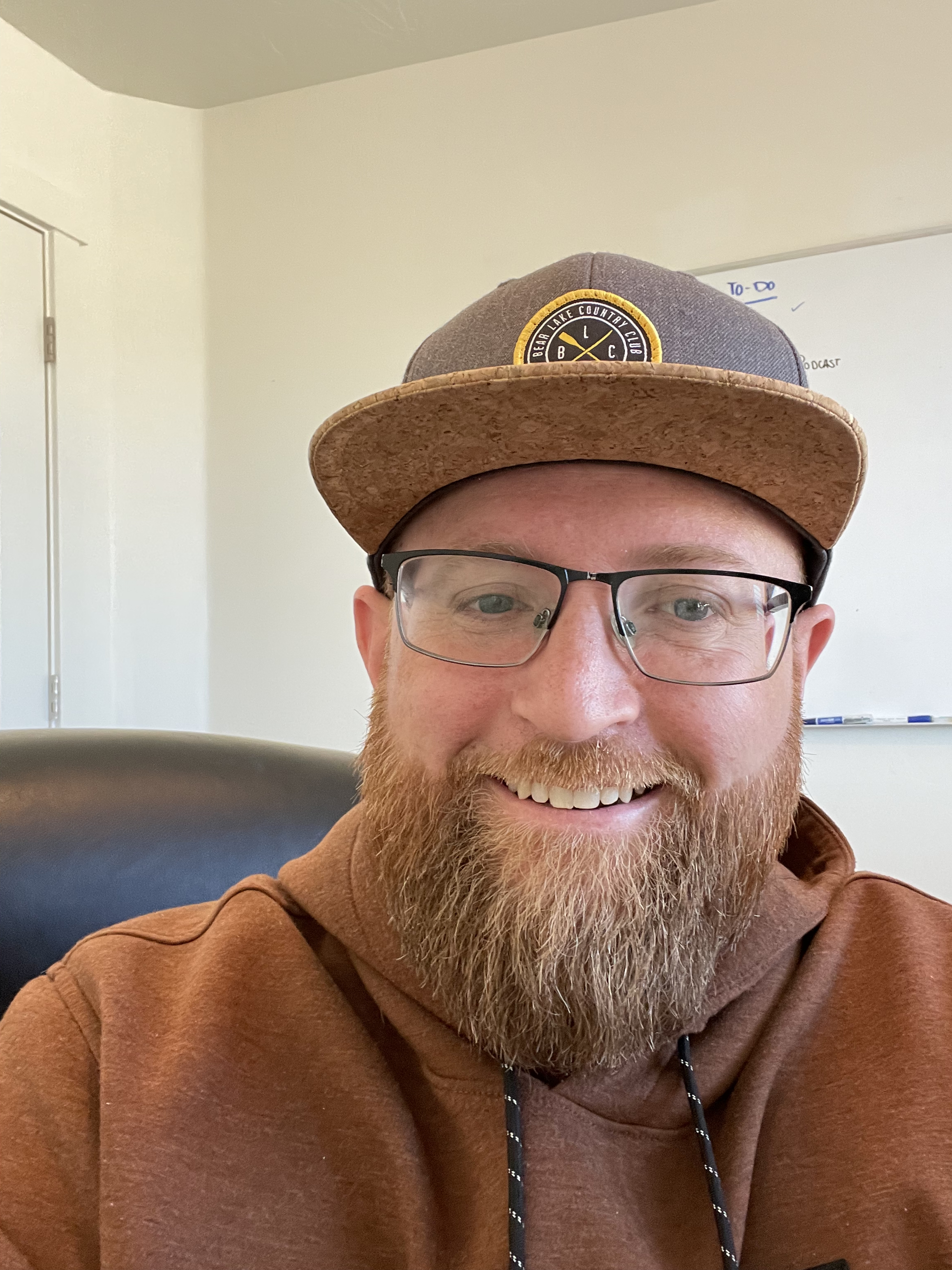
James Gilbert
Today's Guests

